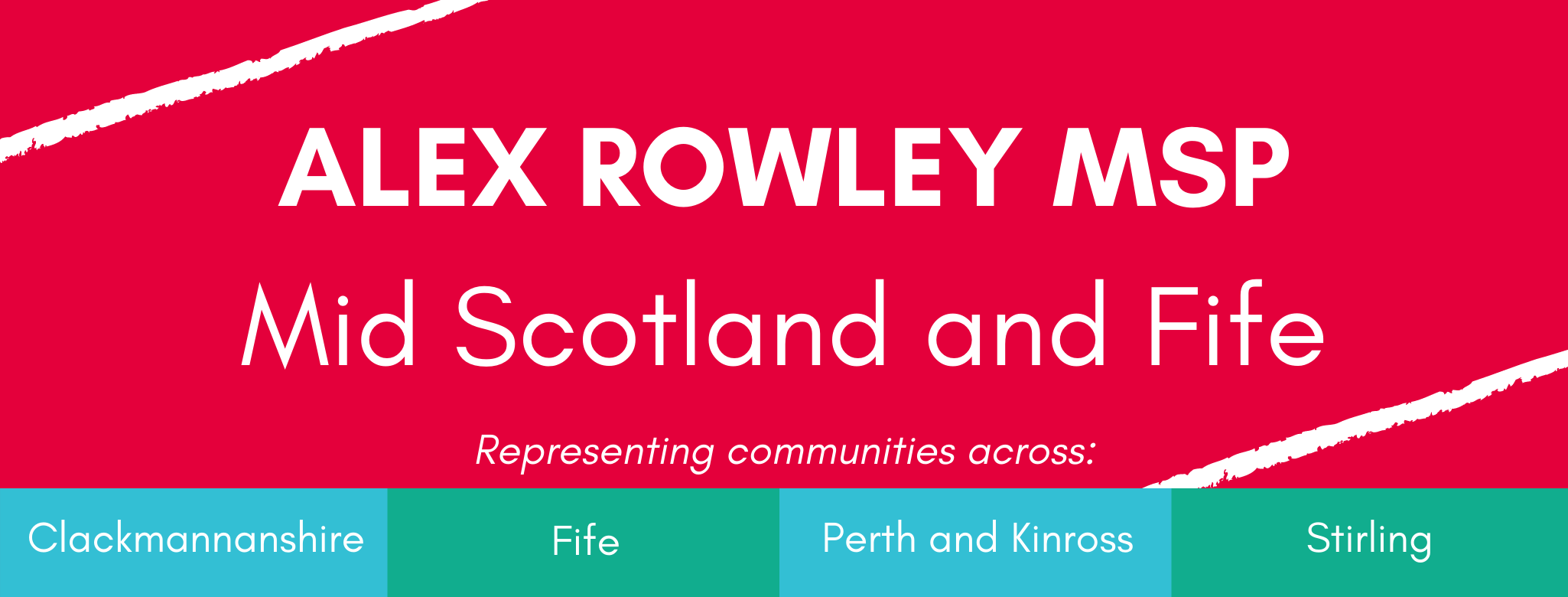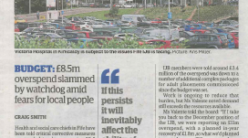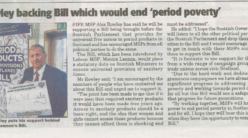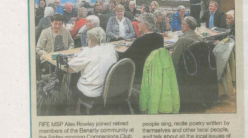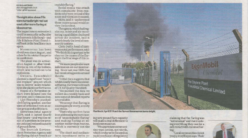
Scottish Youth Parliament members take their campaign for a Fair Wage to Fife Council
Fife Labour has proposed in its draft budget to introduce the ‘Living Wage’ for all Council employees. This will result in 2,000 workers receiving an increase in their wage bringing them up to £7.50 an hour. We do so because we think it is right that every worker is paid a wage that they are able to live on, and that being in work should be a route to lift you out of poverty. As the largest employer in Fife we are keen to lead by example and encourage all employers to sign up to paying a living wage.
A living wage can lift families out of poverty and reduce their reliance on public spending or private debt. Employers across the public and private sectors have found that, combined with a commitment to engage and develop their staff, it does make good business sense too. In addition, it can help us in Fife Council meet our wider objective by boosting the local economy and supporting local communities.
The Joseph Rowntree Foundation has this week published research and says that more than six million people living in the UK who were classed as living in poverty were in households where people worked, compared to 5.1 million unemployed people in poverty. In a blog for The Hufington Post UK , Aleks Collingwood of the Joseph Rowntree Foundation said the report showed “anyone is at risk” of poverty.
“It’s a common misconception that people in poverty in Britain are out of work, on-benefits and badly educated; and a fair number are. However, what this report shows is that anyone is at risk. People in Britain are in a constant cycle in and out of work, and millions have been in and out of poverty since the economic downturn – five million people have claimed jobseekers’ allowance (JSA) at least once in the last two years.” (http://www.huffingtonpost.co.uk/2012/11/26/working-poverty-workless-jrf_n_2190169.html?utm_hp_ref=uk )
Commenting, TUC general secretary Brendan Barber said; “Some employers are fuelling low pay Britain by paying staff the bare minimum when they can easily afford to pay more. We want more employers to pay a living wage, and for the Government to play its part by ensuring its cleaners and security staff get a decent wage.”
So Fife Council can and will lead by example and I want us to encourage all employers who have contracts with the Council to pay the ‘Living Wage’. Whilst the Scottish Government say that this would be illegal, John Park MSP is currently taking a Bill through the Scottish Parliament that would see the public sector have the powers to include in contracts a clause that says you must pay the living wage.
John said; “More than £9bn is spent annually by the public sector in Scotland procuring goods and services from the private sector, however, in 2011, 28% of private sector employees were paid less than £7.20 an hour”.
Council workers have been subject to a pay freeze for the last three years which with rising costs has made life difficult. Council leaders came together last week and have agreed to put forward a rise this year of 1% and to bring forward the living wage at £7.50 per hour. The principle of giving more to support those on the lowest incomes is one that Fife Labour has and will continue to promote.
I believe that the principles of fairness and making work pay are key to a better society and here in Fife we can help create a fairer and better society by promoting a living wage and asking all employers to consider the benefits of paying their workforce a minimum fairer living wage where at present they pay below the living wage.
History of Living Wage
The concept of a Living Wage has roots in various cultural, religious and philosophical traditions.
The modern UK Living Wage Campaign was launched by members of London Citizens in 2001. The founders were parents in the East End of London, who wanted to remain in work, but found that despite working two minimum wage jobs they were struggling to make ends meet and were left with no time for family and community life.
In 2005, following a series of successful Living Wage campaigns and growing interest from employers, the Greater London Authority established the Living Wage Unit to calculate the London Living Wage.
The Living Wage campaign has since grown into a national movement.
Local campaigns began emerging across the UK offering the opportunity to involve many more employers and lift many more thousands of families out of working poverty.
In 2008 the Centre for Research in Social Policy (CRSP) funded by the Joseph Rowntree Foundation began calculating a UK wide Minimum Income Standard (MIS) figure. The MIS is an average across the whole of the UK , but does not reflect the variation in the cost of living inside and outside of London .
In 2011 Citizens UK brought together grass roots campaigners and leading employers from across the UK, working closely with colleagues on the Scottish Living Wage Campaign in particular, to agree a standard model, calculated by the CRSP, for setting the UK Living Wage outside of London.
At the same time, following consultation with campaigners, employers who support the Living Wage and HR specialists, Citizens UK launched the Living Wage Foundation and Living Wage Employer mark.
These new initiatives recognise and celebrate the responsible leadership shown by Living Wage Employers and support employers to incorporate the Living Wage into organisational structures long term.
Since 2001 the campaign has impacted over 45,000 employees and put over £210 million into the pockets of some of the lowest paid workers in the UK .
Paying the Living Wage is a recognised sign of good practice in employment
In Fife we can make history in February next year when we approve a budget that includes provision for 2000 Fife Council workers to be paid the living wage. We can then build a campaign for support from employers across Fife to recognise the value of doing likewise.
You can have your say in Fife Council’s draft budget www.fifedirect.org.uk/budget
Alex Rowley is Fife Council Leader
[youtube clip_id=”dblFQWQ5S_w” height=”” width=”640″]
